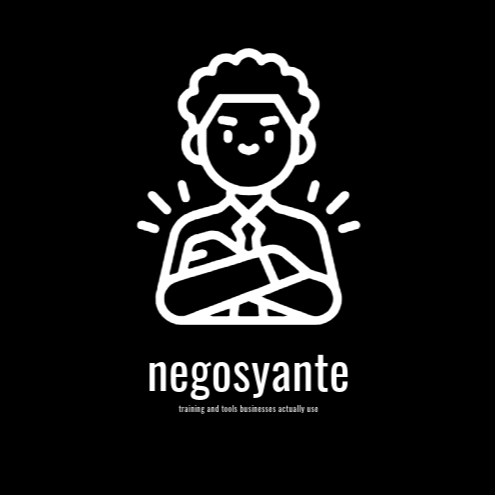The Importance of Tailored Training for Entrepreneurs in the Philippines
Why Generic Business Training Isn’t Enough for Business-minded Filipinos
Starting and growing a business in the Philippines comes with unique challenges—cultural nuances, economic conditions, and local consumer behaviors all play a role in success. While many entrepreneurs turn to free online courses and generic business advice, these often fail to address the specific realities of running a business in the Filipino context.
Tailored training—programs designed for Filipino entrepreneurs—can bridge this gap, providing practical, culturally relevant strategies that drive real growth.
Challenges Filipino Entrepreneurs Face
- Limited Access to Capital
- Many Filipino entrepreneurs rely on personal savings or informal loans (e.g., *”5-6″ lending*), making financial management crucial.
- Generic financial training often doesn’t cover alternative funding options available in the Philippines (e.g., DTI loans, DBP programs).
- Digital Divide & Tech Adoption
- While e-commerce is booming, many small business owners still struggle with digital payments, online marketing, and logistics.
- Training must consider varying levels of tech literacy, especially for sari-sari store owners transitioning online.
- Local Market Dynamics
- Filipino consumers value “suki” (loyalty) relationships and personalized service.
- Western-style sales tactics may not work; training should emphasize relationship-based selling.
- Regulatory Hurdles
- BIR registration, LGU permits, and barangay clearances can be confusing.
- Entrepreneurs need step-by-step guidance on compliance, not just general business theory.

How Tailored Training Helps Filipino Entrepreneurs Succeed
1. Culturally Relevant Business Strategies
- Training that incorporates Filipino values (e.g., “bayanihan,” “utang na loob”) helps entrepreneurs build trust and loyalty.
- Case studies from successful local businesses (e.g., Jollibee, Lazada sellers, palengke vendors) provide relatable examples.
2. Hands-On, Practical Learning
- Instead of theoretical lectures, effective training includes:
- Workshops on digital tools (GCash, Facebook Selling, Shopify Lite).
- Role-playing for customer interactions (“Pabili po!” negotiations).
- Local mentorship from experienced Filipino entrepreneurs.
3. Government & NGO-Led Programs
- DTI’s Kapatid Mentor Me – Free mentorship for MSMEs.
- GoNegosyo – Entrepreneurship seminars with industry leaders.
- TESDA – Skills training for aspiring business owners.
4. Focus on Sustainable Growth
- Many Filipino businesses start as side hustles (“rakets”). Training should teach:
- Cost-efficient scaling (e.g., “tingi” to wholesale transition).
- Crisis management (typhoons, inflation, supply chain issues).
Success Stories: Filipinos Who Benefited from Tailored Training
- Aling Maria’s Sari-Sari Store – Learned digital bookkeeping and now uses GCash for payments, increasing sales by 30%.
- Juan’s Home-Based Bakery – Joined DTI’s online selling workshop and now supplies local cafés.
- Tech Startup Founder – Attended QBO Innovation Hub sessions and secured seed funding.

Where to Find Tailored Training in the Philippines
✔ DTI Negosyo Centers – Free seminars on business registration and marketing.
✔ PLDT & Smart SME Nation – Digital skills training for entrepreneurs.
✔ Local Universities & Coops – Affordable courses on agribusiness, retail, and tech.
Final Thoughts
Filipino entrepreneurs don’t just need business knowledge—they need the right kind of knowledge. Tailored training programs that consider local challenges, culture, and opportunities can mean the difference between a struggling negosyo and a thriving enterprise.
Are you a Filipino entrepreneur? Seek out specialized training today—your business deserves strategies made for you.


Leave a Reply